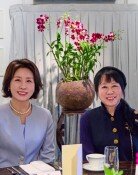[Friday Forum]Inequality in Education Opportunities
[Friday Forum]Inequality in Education Opportunities
Posted May. 24, 2001 08:41,
![[Friday Forum]Inequality in Education Opportunities](https://dimg.donga.com/egc/CDB/ENGLISH/Article/20/01/05/25/2001052534938.jpg)
On account of globalization and the neo-liberalism, competitiveness and efficiency have become the most important criteria in the field of education in our society. As a result, a societal concern for the equality in education has faded away. Not too long ago, an appalling analysis was reported with regard to the inequality in education. According to the analysis, the inheritance of wealth and social status is taking place through the inequality in education. Surprisingly, this analysis did not create a stir.
According to the `Report on the Survey of Characteristics of Freshmen of Seoul National University, 2000`, the number of the students whose parents have either professional or high level management job is increasing, whereas the number of the students whose parents engage in agricultural work or labor work is decreasing. Based on this report, it was estimated that the chance for the students, whose parents have high level management job, to enter SNU is 30 times higher than other students whose parents engage in the labor work.
According to another survey, the high schools in Gangnam District has the highest admission rate for SNU. The admission rate for SNU in one of the Gangbook districts was one tenth of the Gangnam District. The sad thing about this phenomenon is that the difference in the expenditure for the private tutoring per household generates this kind of discrepancy.
Persons born in well-to-do families not only grow in good cultural environments, but also can enter prestigious colleges with the aid of high-priced private tutoring. These people can rise rapidly to high positions through the benefits in a society where education background is deemed the most important. The starting point of these people is different from that of people who are not well-off.
In most West European countries, if one has will and academic ability, one can have free education, including a doctoral study. This is extremely differently from our situation in which parents have to bear the heavy burden of paying tuitions for their children.
If the capitalist society wants to justify its system, it should at least offer an equal education opportunity for the children who are from the underprivileged family to move up along the social status. Therefore, the U.S., the representative capitalist country, has introduced the `affirmative action` system to give opportunity to the minority students. Each college in the U.S. is developing various policies to enhance the diversity among student body.
Taking into consideration that the `education background-centered society` is the root cause of the `inheritance of social status` in Korea, it is important to clear out the unfair social privileges and special favors. Along with this, to decrease the dependency on the private tutoring by strengthening the school education system through the expansion of education finance is the key solution.
For instance, it is necessary to expand the scholarship system for the children who are from less privileged families and to sponsor the education fee to the lower income households. In the advance of the information society, it is also important to ensure that the `digital divide` between the different income classes will not take place. The college entrance system, which is favorable only to the students who can rely on the high-priced private tutor, should be eliminated. Even when the new college entrance system, which aims at diversity and specialization, is introduced, a thorough examination is required to evaluate how the new system will affect the students who are smart, but poor.
It is important for SNU and other national universities to define their roles. SNU is more like the `private asset` than the `public asset`. Children of labor workers or farmers no longer dream of entering the national universities. The national universities should open the door to the students who are academically qualified but cannot afford the private universities. Moreover, the national universities should concentrate on the basic studies, which are abandoned by the private universities due to their lack of practicality.
The inheritance of social status through education should not continue. `Society of inheritance` damages the social integration and the dynamic power of the society. In the end, it even ruins the competitiveness. This should not be forgotten.
Ahn Byung-Young (professor at Yonsei University)







